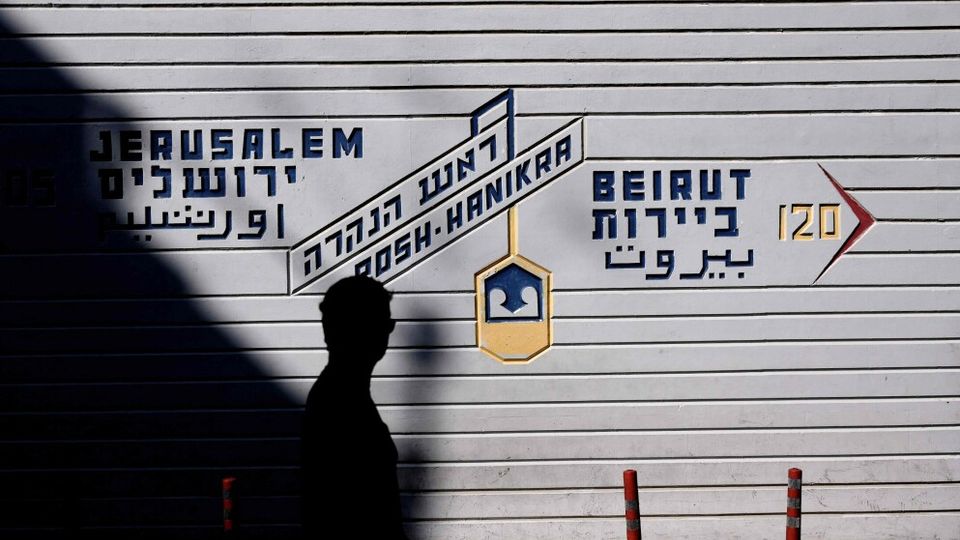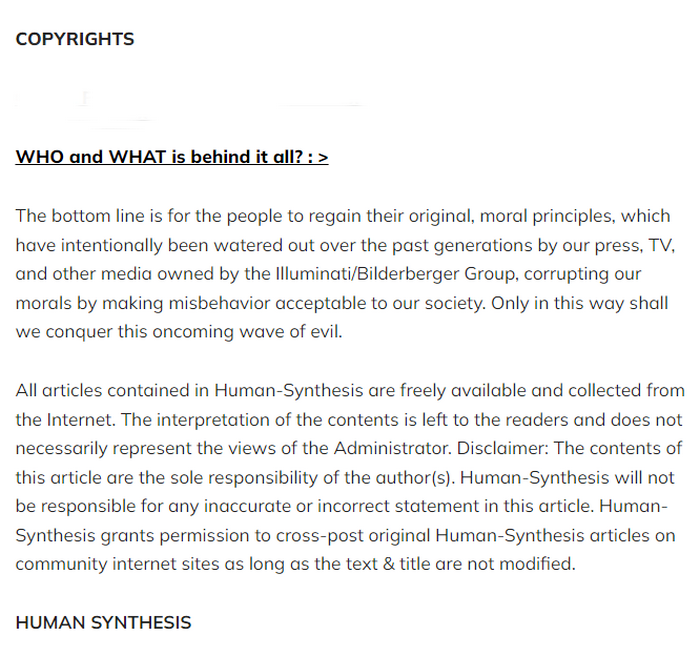Covering the Middle East conflict as a reporter and commentator for 47 years does something to a person.

Internal comments: This is a comment. The comment expresses the writer's position.
I am Cursed, frustrated, and sorry.
By Dagbladet - Jan-Erik Smilden Commentator - 12 November 2023 -
Holocaust.
I don't think I was more than four or five years old when I heard about the Holocaust. I had moved to Nedre Nordstrand in Oslo, and the neighbor boy of the same age became my best friend. The family was Jewish. My mate's father had lost three brothers and his father during Hitler's persecution of the Jews. It wasn't often that he talked about what had happened, but I remember a summer day on the beach like it was yesterday. What he told made an indelible impression.
My friend's father had his shop littered with swastikas several times. A German boy who moved into the neighborhood was the son of a Nazi. When one day he threw my friend out into Mosseveien and said: "I'm going to kill you, you bloody Jew", the rest of us told him to go to hell. Fortunately, the family moved soon after.
When the Six-Day War broke out in 1967, I, like almost every other Norwegian, was completely on Israel's side. This also applied during the October War, which the Israelis call the Yom Kippur War, in 1973. At that time there was hardly any talk of Palestinians, it was as if they did not exist.
Then I met the Middle East up close for the first time, as a seconded employee at Dagbladet in the summer of 1976, when the civil war in Lebanon was in full swing. I arrived just as the Palestinian refugee camp Tel al-Zataar in East Beirut fell to the militia forces of the Christian party Kataeb (also called the Phalangist party).
At least 1,500 Palestinians, many of them civilians, were killed in this, which was a revenge operation for a massacre of Christians in the town of Damur, south of Beirut, half a year earlier, carried out by units from the PLO. This was again a revenge action for a massacre of Muslims in Karantina in Beirut two days earlier, with the Falangists at the forefront.

I quickly realized that this civil war was about more than Lebanon; it was a regional conflict. Kataeb collaborated with Israel, several Palestinian groups collaborated with Syria. Everyone did their best to make the war as terrible as possible.
Then came Easter 1978. Israeli soldiers occupied southern Lebanon to crack down on the Palestinians in the area. Palestinian guerrilla soldiers had, after a decision in the Egyptian capital Cairo in 1969, been given the opportunity to set up bases in southern Lebanon, where they launched sporadic attacks on Israel. In 1982 came another Israeli invasion. The Israeli occupation of southern Lebanon lasted until the year 2000.
Photographer Rune Myhre and I were sent to Israel to cover the 1978 war after the UN had decided at Easter to send peacekeeping UN soldiers - also Norwegian - to the war zone. Before the Norwegians arrived, we were in southern Lebanon every day with a guard from the Israeli army IDF. The destruction was terrible, and the Israelis showed no mercy.
One day Rune and I stood and looked down at the body of a three- or four-year-old Palestinian boy, killed during an Israeli rocket attack. When I asked for a comment, the caretaker said:
- It is just as well to kill them before they grow up and become terrorists.
STRONG IMPRESSIONS: Rescued from the ruins0 seconds of 1 minute, 5 secondsVolume 90% GAZA: Over 4,000 children are said to have been killed on the Palestinian side in the war between Israel and Hamas. Here, children are rescued from the ruins of the town of Khan Younis. Reporter: Edward Stenlund. Video: RT/AP/PAL Today TV
I was shocked but quickly found out that a majority of the Israeli soldiers hated the Palestinians who they saw as the Nazis of the time. The IDF also had a Christian collaborator, later called the South Lebanese Army, led by a major named Saad Haddad. Haddad was seen as a traitor by the Lebanese authorities in Beirut.
Israel did not like the UN's presence, it interfered with the clean-up operations and the "stabilization" of the area. The Norwegian UN soldiers noticed this well because their battalion headquarters were in south-eastern Lebanon, right on the border with Israel and with Haddad as their nearest neighbor.
Haddad's forces constantly fired at the Norwegians, once because he had had an article translated from Aftenposten that he did not like the content of. Norwegian battalion commanders constantly tried to get the Israelis to stop Haddad but without success.
Almost all Norwegian UN soldiers came to South Lebanon with a positive view of Israel, but it did not take long for that to change. Norwegian soldiers who were going to Perm were harassed by the Israeli border authorities, and there were constant approaches to confrontations between the Norwegian peacekeepers and the Israeli soldiers inside southern Lebanon. The IDF soldiers were perceived by many as arrogant and uncooperative.
A small first-hand example at the Rosh HaNikra border post in northwestern Israel in the early 1980s:
Photographer Jacques Hvistendahl and I were on a reportage trip in Israel and southern Lebanon and had UN accreditation, but just then the Israelis demanded that we have to stay in Israel at night. As a result, there were only day trips into southern Lebanon.

Crossing the border was often a nightmare. One day we were met by a very grumpy female border officer. She dealt with all the unused films of Jacques. She opened the packages, slowly went through the security procedures, and time passed. The next day we came out again to the same female border guard and one of her colleagues. When they saw us, they took a lunch break and didn't come back until a long time later. Then it began the same meticulous scrutiny of our unused films.
- You did this yesterday, Jacques said to the female border guard.
- Yesterday was yesterday, today is today, she replied with a grin.
Twenty years of presence in southern Lebanon changed the attitude of many of the Norwegian UN soldiers toward Israel. Many believe it was this that led to a change of pace in parts of Norwegian public opinion.
Rage against the government: - Beheading children seconds of 1 minute, 33 secondsVolume 90% HARSH CRITICISM: During Wednesday's Question Time at the Storting, Sylvi Listhaug rages against the government's handling of the war between Israel and Hamas. Video: Stortinget, Anabelle Bruun/Dagbladet TV
Let me return to children in the late 1970s when I first visited the West Bank and Gaza, occupied by Israel since the Six-Day War in 1967. Thousands and thousands of Jewish settlers had already arrived in the West Bank, far fewer in Gaza. Israeli soldiers were in control, they were the occupiers. The Palestinians were the occupied who had to live under Israeli supremacy and what many of them perceived as colonialist arrogance.
Just a couple of other self-experienced examples:
One evening when I was a passenger in a Palestinian-shared taxi from Ramallah in the West Bank to East Jerusalem, we were stopped as usual at one of the many Israeli checkpoints. I was the only foreigner in the taxi, and the checking of my passport and Israeli press card went smoothly.
Then it was the turn of the young Palestinian next to me. The Israeli soldier took his ID card and threw it in the air several times. Then he threw it on the ground and stomped on it several times with his military boots. The owner of the ID card sat as if petrified; if he lost it, he would not enter East Jerusalem where he lived.
For us in the taxi, it took an eternity before the young man got his now dirty ID card back.
In December 1988, my wife came to Israel. In East Jerusalem's Old City, some Palestinians had thrown stones at Israeli soldiers, and tourists and Palestinian street vendors just inside the Damascus Gate were told to move away. An old lady selling oranges from a box and from a plastic bag was not fast enough. A soldier grabbed her and at the same time kicked her oranges down a landing. When my wife and I were going to help pick up the oranges, I got a rifle butt in the shoulder.
A couple of days later, we attended a baby baptism in the largely Christian town of Beit Sahur near Bethlehem, where the shepherds are said to have been walking in the fields with their sheep when Jesus was born. After the party ended, we realized that the day was not going to be as we expected. First, a group of youths gathered, then several women began to collect stones for them, and before we knew it, the stones were pelting passing Israeli military vehicles. One of the many episodes of the first Palestinian intifada was underway.
There has been far too much terror, far too much propaganda and far too much stupidity. Jan-Erik Smilden, long-standing Middle East journalist
We moved a little away from the area, but suddenly we heard gunshots. An old woman who was cleaning the hallway in her house with the door open was hit in the stomach and we saw her die. She was no stone thrower, nor was she a stone collector, she was too old for that.
The readers will probably think that the above examples show that as a war reporter I have only come across trifles. No, I have buckets of other and far more dramatic stories, but I try to tell everyday events, as I and others have experienced them.
No, then, the Palestinians have not been the mother's best child in this conflict either, there has been far too much terror, far too much propaganda, and far too much stupidity from that side as well. But one must not forget that it is, after all, about an occupier and an occupied people.
FIGHTING: There is fierce fighting between Hamas and Israeli forces in Gaza City. Reporter: Emma Dalen.
I sympathize with the occupied Palestinian population, but not with terrorists who only make the situation worse for them. I have great sympathy for the Israeli victims and their relatives, neighbors and friends who were slaughtered on 7 October. I also understand that for many, both in Israel and among Jews in other countries such as Norway, this came as a shock, with subsequent memories and traumas of the Holocaust and fear of the future. But that cannot be decisive for how I will comment on the Gaza war.
I support Israel's right to exist within the borders of 1948. The continued occupation of the West Bank, Gaza, East Jerusalem, and the Golan Heights after its conquest during the Six-Day War was a violation of international law. The Palestinians have a right to their own land.
I am critical of much of Israeli policy and the way the country conducts its wars. But I am not anti-Semitic, as I am constantly accused of being.
Israel critic = anti-Semitic, it is claimed by several pro-Israel supporters about people like me. That is simply not true. I get pissed off, frustrated, and pissed off.
Now the bloodiest war is taking place in Gaza since Israel was established in 1948. Israeli soldiers have acted like the biblical hero and giant Samson; to tear open the gates of Gaza City.
The seconds before the massacre broke out


Palestinian-shared